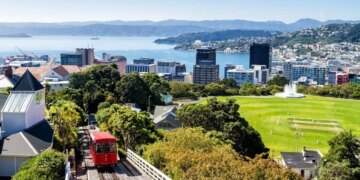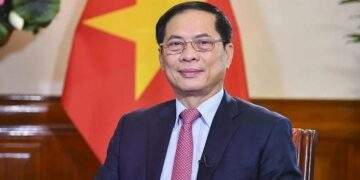How do you see the importance of the Vietnamese market in Carlsberg’s overall strategy?
Vietnam plays a pivotal role in our strategy. It’s one of the most dynamic and high-potential beer markets in Asia, currently the third-largest in the region and ninth globally, with solid fundamentals driven by a young population, rising incomes, and rapid urbanisation.
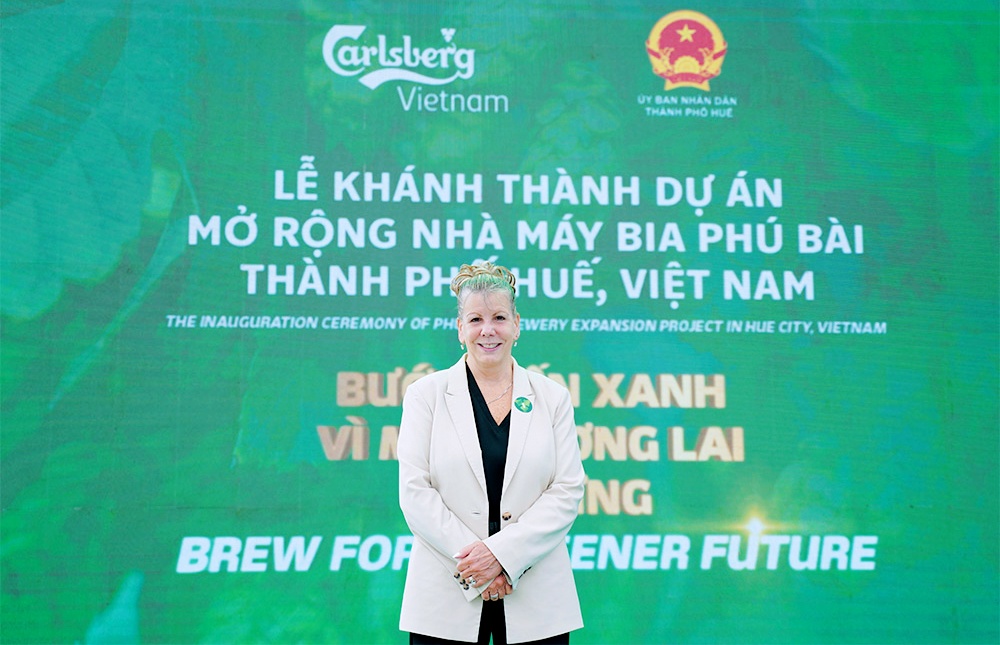 |
| Joy Rice, vice president for Supply Chain of Carlsberg Asia |
In 2024, Vietnam delivered standout economic performance and the momentum is set to continue. This market outlook provides a solid foundation for Carlsberg to expand our presence, strengthen our brands, and capture emerging growth segments.
On top of that market potential, we are fortunate to have highly capable local teams who are fully aligned with the group’s priorities, from growing market share and driving premiumisation to advancing sustainability ahead of targets. This combination of market opportunity and execution is why we continue to invest here, to grow smartly and in partnership with Vietnam’s long-term future.
Why did Carlsberg decide to invest in the Phu Bai brewery expansion?
The Phu Bai brewery expansion is a strategic investment in both capability and operational efficiency. It’s now our largest beer production facility in Asia and one of the most productive globally in terms of labour efficiency.
But this is more than just scale. We have a capable local team, strong and trusted partnerships with government and related stakeholders, and a market with clear long-term potential. That gave us the confidence to invest in infrastructure that enables us to respond with speed, consistency, and quality.
The facility also supports our ability to meet growing demand across our diverse portfolio, including international premium brands like Carlsberg, 1664 Blanc, Tuborg, Somersby, and our beloved local brands Halida and Huda.
Beyond commercial growth, the expansion enables us to contribute more to the state budget, strengthen local sourcing partnerships, and build a more resilient supplier network. It also brings wider economic and social benefits through job creation, skills development, and community engagement. This is growth that benefits everyone along the value chain.
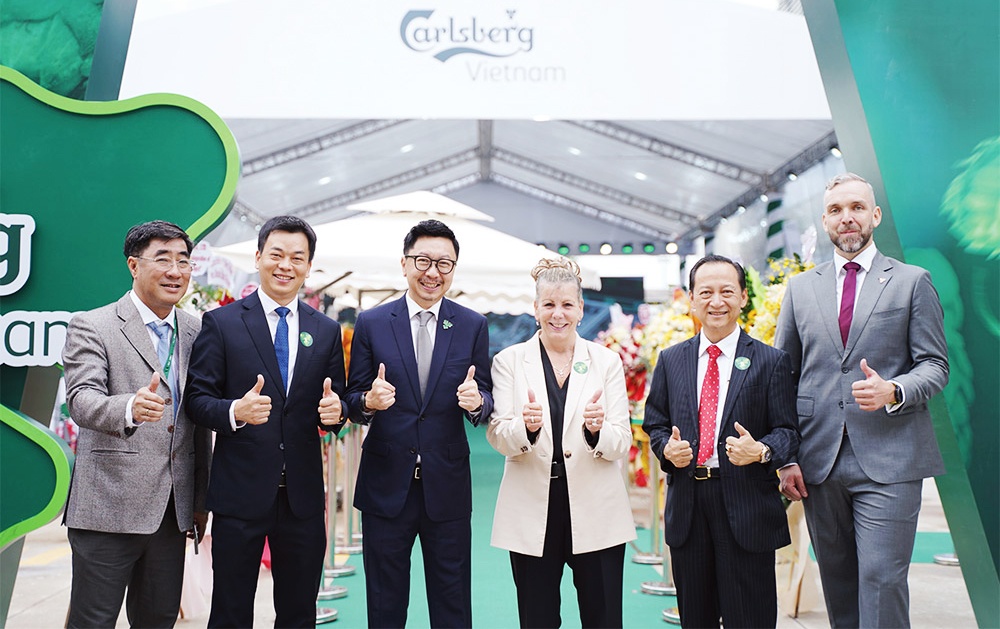 |
Could you share some of the key aspects of the expansion of this brewery?
The expansion represents one of Carlsberg Group’s most significant capital investments in Asia, with a total value of approximately $90 million. Once fully ramped up, it will increase production capacity by more than 50 per cent, reinforcing our ability to serve Vietnam and the wider region.
The facility is equipped with the fastest packaging lines in Vietnam’s brewing industry. It also delivers industry-leading water efficiency, among the best-performing breweries within Carlsberg Asia.
A new brew line is also designed to use 20 per cent less water and 15 per cent less energy. This is coupled with biomass-powered steam, iREC-certified renewable electricity, and a zero-waste filtration system. Other standout features include AI-enabled electric forklifts and upgraded health and safety infrastructure, in line with global Carlsberg standards.
This state-of-the-art facility is also where our product quality comes to life. Several of our brands, including Huda and Halida, have been recognised with international medals for quality, such as the Monde Selection Quality Award. These recognitions reaffirm the world-class brewing excellence delivered at the brewery.
To what extent does the expanded brewery contribute to Carlsberg’s global ambitions?
The expansion is a meaningful step forward in how we realise our global ambitions at the local level. It’s not just about increased output – it’s about how we combine automation, data, and sustainability to enhance performance in a way that’s responsible and future-ready, all while adapting to local needs.
Every market is unique, and we’re mindful that no single model fits all. But what we’ve built at Phu Bai offers learnings we believe can inform how we grow elsewhere, particularly in fast-moving, high-potential markets.
To me, it represents what’s possible when global standards meet strong local capability. And as we look towards our 2030 and 2040 sustainability goals, Vietnam will remain a key player in helping us accelerate responsibly across the region.
How does Carlsberg pursue sustainability to strengthen its supply chain and operations?
Sustainability is no longer a trade-off – it’s a catalyst for long-term value. Every step we take to reduce carbon emissions, improve water efficiency, or minimise waste strengthens our supply chain and brewery operations by lowering risk, improving cost efficiency, and reinforcing trust with regulators, partners, and consumers.
From sourcing raw materials to brewing, packaging, and delivering the final product, integrating environmental, social, and governance (ESG) practices makes our operations more efficient, less resource-dependent, and more resilient. It’s about building long-term competitiveness and ensuring our breweries remain leaders in operational excellence and environmental responsibility, today and for the future.
How is this commitment reflected in the expanded Phu Bai brewery?
The brewery is one of the clearest examples of how we embed ESG into the heart of operations. Specifically, the brewery runs on iREC-certified renewable electricity and uses biomass-powered steam to eliminate carbon emissions from production.
In 2024, Carlsberg Vietnam reached a water efficiency rate of just 2.09 hl/hl (hectolitres of water per hectolitre of beer), among the best in Carlsberg Asia, with a clear target of 2 hl/hl by the end of 2026. We also treat all of our wastewater through state-of-the-art systems and are on track to reach zero waste to landfill by the end of 2025 and net-zero carbon production emissions by 2028.
These outcomes are part of how we run the business, integrated into daily decision-making and aligned with both local and group-wide targets.
What role does Carlsberg Vietnam play in the group’s global ESG performance under the Together Towards ZERO and Beyond (TTZAB) strategy?
Our group-wide ambitions remain clear, including net-zero value chain by 2040 and various targets for the end of this decade: zero carbon emissions at breweries, 100 per cent recyclable, reusable, or renewable packaging, and global water efficiency of 2 hl/hl.
These targets guide how we prioritise capital, partnerships, and innovation in Vietnam. They also help us stay accountable to the bigger picture, delivering growth in a way that contributes to a healthier planet and a more resilient value chain.
Carlsberg Vietnam has become one of the proactive contributors and a clear accelerator of our global TTZAB ambitions. As mentioned, Phu Bai is among the top 10 most water-efficient breweries in Carlsberg Asia, and Carlsberg Vietnam is also on track to reach zero production emissions by 2028. In packaging circularity, the company is targeting 100 per cent reuse or recycling of returnable bottles, kegs, cans, and all other packaging waste by the end of 2026.
What’s remarkable is that these advances are happening alongside expansion and innovation, proving that growth and sustainability can always go together. Carlsberg Vietnam is helping define how we scale ESG in fast-growing.
How do you view Vietnam as a scalable model for enhancing regional performance?
Vietnam offers valuable learnings on how strong local execution can support both business performance and sustainability progress. At Phu Bai brewery, we’ve seen how thoughtful integration of automation and innovation can deliver meaningful results.
Of course, every market has its own context. Rather than applying a one-size-fits-all model, our approach is to learn from what’s working in Vietnam and consider how those insights might inform our efforts elsewhere. We’re encouraged by the progress here and see it as a source of inspiration as we continue to evolve across the region.
What is your vision for Carlsberg’s future in Vietnam?
Vietnam is one of the top growth markets of Carlsberg Group and a strong driver of innovation and sustainability. Our commitment here is long-term and grounded in doing business the right way.
That means continuing to invest in advanced capabilities, empowering local teams, and partnering with the government and communities to drive shared value. Vietnam will contribute and help us deliver on our 2030–2040 ESG roadmap.
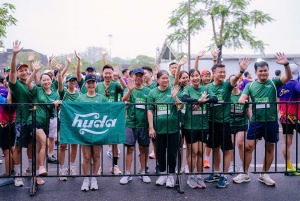 |
Cheers! Carlsberg Vietnam brews culture of wellness
For the fourth consecutive year, Carlsberg Vietnam, together with its beloved Huda brand, proudly sponsored VnExpress Marathon Hue. |
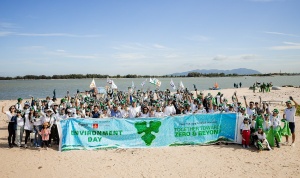 |
Brewing sustainability: Carlsberg Vietnam cleans up for a greener tomorrow
Carlsberg Vietnam marked World Environment Day 2025 with a coastal clean-up, uniting employees and partners to promote sustainability and inspire lasting environmental change in local communities. |
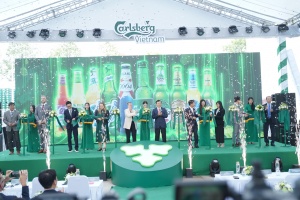 |
Carlsberg Vietnam inaugurates expanded Phu Bai Brewery
Carlsberg Vietnam, in coordination with Hue People’s Committee, held an inauguration ceremony for the Phu Bai Brewery project expansion on August 26, marking a major milestone on the company’s journey of innovation, sustainability, and long-term commitment to Vietnam. |


